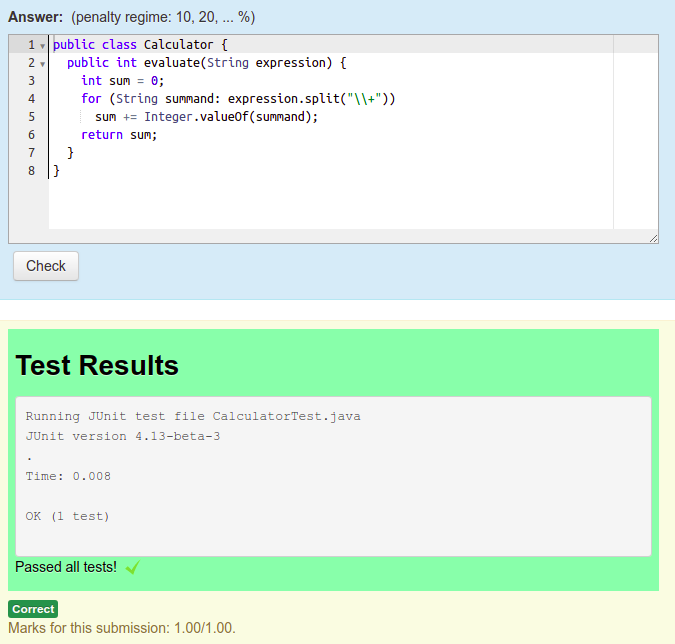The good news is that you can pretty much set any question type you like by use of templates and user-defined question types. The not-so-good news is that it takes a while to get the hang of these.
I don't teach Java myself and have hardly used JUnit. But I've thrown together a question type that may perhaps point the way for you. It assumes the student submits a public class via the answer box (and perhaps attaches additional .java files, though I haven't tested that), while the question author supplies, as support files, a set of JUnit test files named BlahTest.java for any Blah. The question compiles all available .java files and, if all is OK, then runs all the JUnit files it can find. If any of the runs doesn't end in an "OK" line, the student gets zero marks; otherwise they get full marks. All JUnit output (bland unformatted text) is displayed. The JUnit jar files are attached as support files to the base question type so are automatically included in any questions using it.
Here are the only two tests I've run using it:


With normal CodeRunner questions the student gets to see exactly what tests they failed so they can fix their problems. I'm not sure how you wish to tell the student that sort of information if you're using JUnit; I leave that to you to deal with.
The attached question type (a PROTOTYPE and a trivial test of it) has had essentially zero testing; it certainly isn't ready for production use. I'm just providing it to help you on your way. The example was taken from the JUnit getting started page. Error conditions, multiple JUnit tests, and multiple student files are all untested.
It's also possible that some other Java CodeRunner users have developed suitable question types for you. Let's see if anyone responds.
If you do come up with a nice solution over time, please consider posting it back to this forum.
Richard


